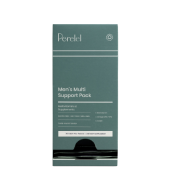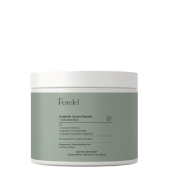Whether you choose to breastfeed your baby, use formula, or do a combination of both, ultimately fed is best—no matter how you get there. However you feed your child, know that you are an incredible parent and doing an awesome job keeping your tiny human alive. High fives all around. At Perelel, we take a no-judgement approach to how you choose to feed your baby and instead strive to empower you, whatever path you decide is best for you and your family. Ultimately, we want to see a world with more healthy babies and more healthy moms. So here are some tips to help with that.
Build Your Support Network
Consider the options of how you wish to feed your baby while you’re pregnant. You may feed your baby breast milk, formula, with bottles or combination feed. Some people know that they will 100 percent formula feed their child for a wide variety of reasons. Some know that they need to return to school or work soon after birth and will have a caregiver bottle feed their child. Whatever you choose, you can prepare yourself while pregnant.
Get the contact information for two different lactation support people ahead of time. This way, you have their information on hand if things arise in your feeding journey that you need help with. Even if you’re unsure about breastfeeding, a lactation support person can help guide you. Not all support is created equal so finding someone before you’re in the thick of things will allow you the time and space to interview and find that perfect match for you. If you’re planning to breastfeed you can attend (even virtually) lactation support groups while pregnant. This will allow you to observe other breastfeeding parents, ask questions and start to build a support network. Ask friends, your pediatrician, OB/GYN or midwife for recommendations or check out La Leche League online to find a group near you. However you feed your baby, support is crucial. Parenting is a wild journey and being surrounded by encouragement and care goes a long way.
Know Your Insurance Coverage
If you plan to pump breast milk, order your pump in advance if possible. Your insurance will likely cover a breast pump but you may need to contact them to order it or get the information to a medical device supplier to order. Different insurance companies have different rules and pumps covered. Contact yours to find out if and when you are eligible.
Research Formula and Bottles In Advance
For those who plan to formula feed or combination feed, learn about the wide variety of formula and bottle options available. It may be overwhelming to find out how many choices you truly have. Find out what is easily accessible in your area and ingredients that you are most comfortable with. There are numerous bottles on the market, from plastic to glass to stainless steel and these come in different shapes and sizes. You honestly won’t know which bottle works best for your baby until your little one arrives on the scene, full of tiny opinions, but you can figure out what feels best for your lifestyle and budget. I do not recommend that you stock up on either formula or bottles in advance but you may wish to have some options on hand if you do know that formula and/or bottles are in your feeding plan. Sterilize bottles and pump parts according to manufacturer instructions prior to first use and wash with warm soapy water after use.
Consult Your Pediatrician
Talk to your pediatrician about your feeding choices. Decide if you are on the same page regarding feeding choices. Ask how they support families in feeding and if they have staff available for support should you need it. Ask about growth chart measurements and if they use the most up to date research on breastfed and formula fed babies. You can discuss this during an expectant parent visit.
Feeding Best Practices
Learn about and understand newborn feeding practices. A newborn’s belly is the size of a cherry, holding less than an ounce at birth. Newborns feed approximately every two hours but often not like clockwork. If breastfeeding, aim to nurse 10 to 12 times in a 24-hour period. If you plan to bottle feed, either with formula or expressed breast milk, learn about paced bottle feeding and share this information with other caregivers. Learn how to store and prepare breast milk and formula as well as safety guidelines for storage. Breast milk is considered safe for consumption for up to four hours at room temperature, four days in the fridge and four months in the freezer.
We want to hear about your experience with feeding your baby, whether that's through breastfeeding, formula or a combination of both. Share your story by joining the Perelel community on social or by subscribing to our newsletter.
This article is for informational purposes only. It is not, nor is it intended to be, a substitute for professional medical advice, diagnosis, or treatment and we recommend that you always consult with your healthcare provider. To the extent that this article features the advice of physicians or medical practitioners, the views expressed are the views of the cited expert and do not necessarily represent the views of Perelel.




















